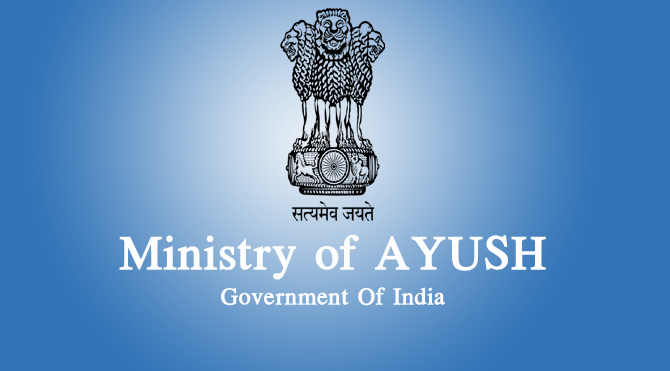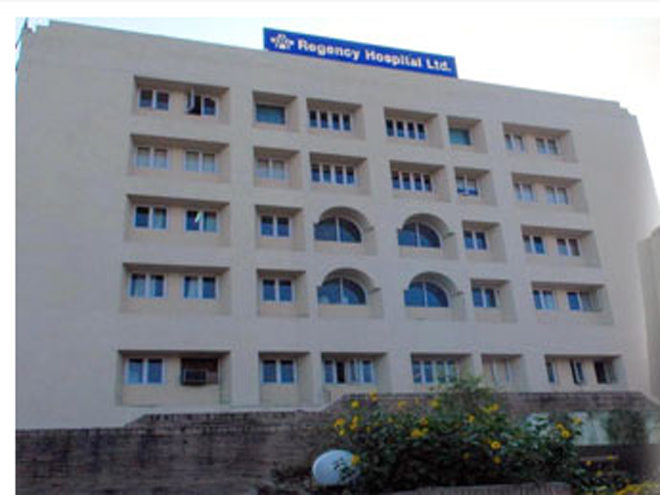
 Accreditation cannot be made mandatory and itshould happen through voluntary compliance to makeit more acceptable and sustainable, saysU K Ananthapadmanabhan, President (Operations& Projects), Kauvery Hospitals Group, Trichy andMember, CII National Healthcare Committee
Accreditation cannot be made mandatory and itshould happen through voluntary compliance to makeit more acceptable and sustainable, saysU K Ananthapadmanabhan, President (Operations& Projects), Kauvery Hospitals Group, Trichy andMember, CII National Healthcare Committee
Indian healthcare industry has done considerably well afterindependence despite several inadequacies. Maternal andinfant mortality rates have gone down and average life expectancyhas gone up from 40 to 65 years. Waiting time andcost for even complicated heart surgeries and neurosurgeriesis much less than in United States of America or many westerncountries. On the demand side, 75 percent of outpatientcare and 60 percent of inpatient care are availed in the privatesector.

Both these observations point to the presence of a thriving privatesector in the state as well as the increasing preference of thepublic towards private providers. Hence there is a need for theprivate sector to perform well and provide quality and affordableservices to achieve universal healthcare. Our healthcare systemhas come of age and it is time that we start critically uatingthe quality of care provided in the private hospitals and governmenthospitals.
Does accreditation ensure quality healthcare? It does. Accreditationby definition is a self-assessment and external peerassessment process used by healthcare organisations to accuratelyassess their level of performance in relation to establishedstandards. In developed countries the clinical outcomes did notsignificantly improve because of accreditation indicating thataccreditation is a means and not the only means for qualityimprovement (QI). In America a recent survey showed that 70percent of the people felt that accreditation improves the quality of care in hospitals. Thus accreditation is a wonderful tool inthe overall armoury required to ensure patient safety and qualitycare. It is not the only tool required to attain excellence in quality.It is unfair to compare the Indian healthcare scenario to theAmerican healthcare system which is a very well organised andself-regulated system. Therefore accreditation cannot be mademandatory and it should happen through voluntary complianceto make it more acceptable and sustainable.
Accreditation
National Accreditation Board for Hospital & Healthcare Providers,under Quality Council of India (NABH), which comeswith 102 standards in 10 chapters, is the only set of guidelines.These standards have not been deliberately made prescriptiveto provide enough opportunities for the healthcareorganisations to excel in their quality standards, comply withthe laws of the land and meet standards provided by professionalbodies in clinical and non-clinical areas. Sharingof knowledge and expertise among the healthcare organisationswhich have been accredited and which are awaiting accreditationis acceptable practice in all developed countries,but hospitals should follow all ethical principles and normsand should not resort tocut and paste cultureparticularlywhile developing standard operating procedures which will curb the innovative sprit in the Indian health care system.

 Hospitals seeking accreditation should adhere to the NABHstandards in letter and spirit and use them for bench markingtheir performance and misusing certificate of accreditation justas a marketing edge. NABH on it part, has been constantlyreviewing the standards and in November 2011 has releasedlatest and the 3rd Edition. This standard has been recognisedby International Society for Quality in Healthcare (ISQua). All theten chapters in the standard reflect two major aspects of healthcare delivery i.e. patient centered functions and healthcare organisationcentred functions.
Hospitals seeking accreditation should adhere to the NABHstandards in letter and spirit and use them for bench markingtheir performance and misusing certificate of accreditation justas a marketing edge. NABH on it part, has been constantlyreviewing the standards and in November 2011 has releasedlatest and the 3rd Edition. This standard has been recognisedby International Society for Quality in Healthcare (ISQua). All theten chapters in the standard reflect two major aspects of healthcare delivery i.e. patient centered functions and healthcare organisationcentred functions.
Senior hospital administrators participating in the TN HealthSummit 2012 held on 14th July on the theme New Frontiers inHealthcare: Opportunities and Challenges at Chennai ,organisedby CII Tamil Nadu Healthcare panel felt that in practicehospital accreditation in India has definitely contributed to the improvement of quality of care in the hospitals, especially inthe Indian healthcare sector. The process of accreditation is asrelevant and appropriate for healthcare institutions in India asin the hotel industry and higher education. However, the existinghospitals which are attempting for accreditation are findingit quite difficult because the NABH requirements require somestructural and cultural changes which needs total top managementcommitment, financial resources and complete involvementof all the members in the organisation from housekeepingboy to the top medical consultant.
Many existing hospitals which require considerable amountof funding to effect changes in the system are obviously not attemptingto seek accreditation. It is heartening to note that allnew hospitals and in hospital expansion projects, hospital authoritiesseem to be working for accreditation at the planning and design stage itself. In the new hospital projects, architects aredeveloping their plans based on the SOPs given by the clientsat the design stage itself. The process of accreditation seems tohave got its required momentum, thanks to the constant awarenesscampaigns organised by the NABH and emerging trend oflarge corporate organisations, MNCs and insurance companieslooking for NABH accredited hospitals for corporate tie ups andinsurance payments. There is general agreement that in courseof time market forces will drive the accreditation process.
Focus on patient safety and patient rights
During the last five years accreditation process focused onvarious aspects of patient safety and patient rights whichthe patients rightly deserve. Medical errors and negligencereporting, incident and sentinel event reporting and actiontaken reports, medical audits seem to have greatly improvedleading to better quality care in accredited hospitals. Qualifiedand trained NABH auditors, during their pre and finalaudit do a meticulous and a fair uation which has wonthe appreciation of the hospital management professionalsaround the country.
Hospitals working towards NABH accreditation perceive thatthe inspection by NABH authorities is a learning and course correctionexercise to improve quality of care instead of doubting itas fault finding mission. According to NABH sources there are138 hospitals accredited for a three-year cycle and there are478 hospitals waiting in the wings at different stages for approval.This is a clear sign that accreditation of hospitals is catchingup faster than expected.
Accreditation may not be a panacea for all ills in the Indianhealthcare industry but as stated by Wendy Nicklin, President and CEO, Accreditation Canada Accreditation is arisk mitigation strategy, a performance measurement tool, amanagement tool for diagnosing strengths and areas for improvementand provides key stakeholders with an unbiasedthird-party review.
Be a part of Elets Collaborative Initiatives. Join Us for Upcoming Events and explore business opportunities. Like us on Facebook , connect with us on LinkedIn and follow us on Twitter , Instagram.












